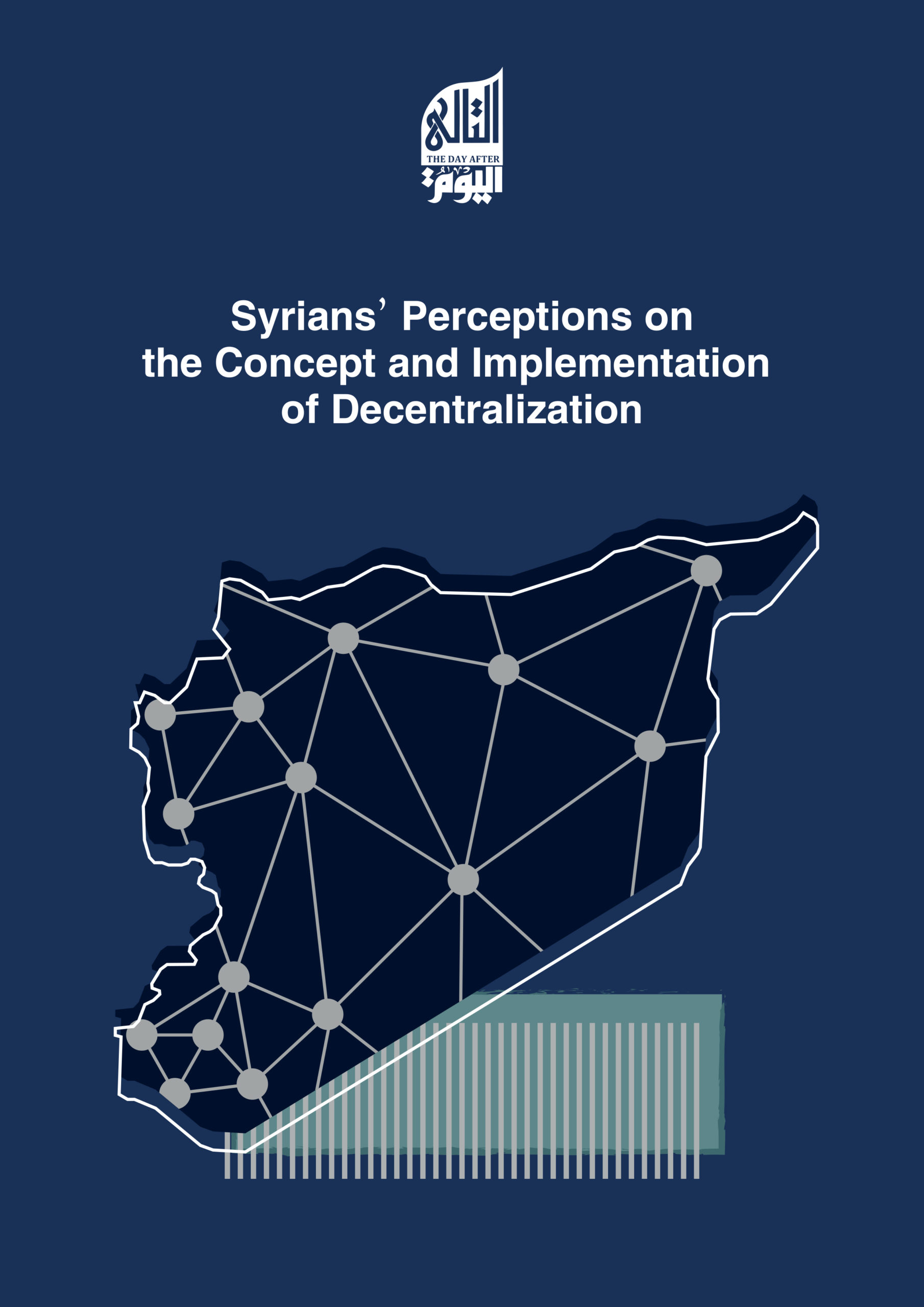
Date: May 2022
This survey explores the views of Syrians — regardless of their background, affiliations, their place of origin or residence — on the concept of decentralization, and how it might impact politics, society and governance in the future.
It analyzes statistical indicators of decentralization, and how it might affect post-conflict Syria, especially regarding the future relationship between the central authorities and the localities and the distribution of roles and powers among them in the various sectors. It also explores the possible role of decentralization in increasing social engagement and political representation and in achieving good governance and ensuring justice to the victims of the conflict, building domestic peace, and supporting stability. The study presents a survey of a large sample that represents the various national, ethnic, and sectarian backgrounds of Syrians, and the respondents are geographically distributed in all the various regions in Syria and the neighboring countries and countries of asylum in Europe.
The survey results show an acceptance of decentralization and its potential impact on the political and administrative dynamics of the country and the future of transitional justice, accountability, democratic transition, and peacebuilding efforts in the period of political transition in Syria. In addition, the surveyed sample highlighted the need to develop the legislative, judicial, electoral systems and the cultural and developmental frameworks in the post-conflict era. The current political and ideological polarization in Syria is rife with tension, and the country is divided into various spheres of influence with warring political and military powers in control, each implementing a different governance framework. However, the sample showed an agreement on the need to reduce the powers of the central government and allow localities in the future extensive powers over the local economy, politics, and services.
Based on the survey findings, this study presents many recommendations and suggestions regarding the constitutional, legal and civic and theoretical frameworks; for example, it suggests stipulating in the constitution that decentralization is a foundation of the system of governance in the state. The constitution should determine the roles and powers of localities and their administrative units and their relationship and interaction with the central government. The study further suggests introducing new legal stipulations and incorporating them into the local administration law; for example, it suggests that the local governor should be elected directly by the local community, which would make him accountable to his community.
